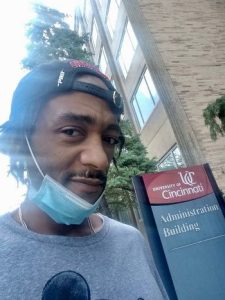AKRON, Ohio — Akron city council has failed to seat the city’s new civilian police oversight board during a Monday night meeting. This is the second consecutive meeting in which they did not seat members of the board.
The deadline, according to the city’s charter, was Feb. 27.
Akron-based attorney and former Akron City Council member Warner Mendenhall said he has been following Issue 10 closely, the charter amendment that required the creation of a nine member civilian-police review board.
“One of the things that has caused a problem is the fact that they need a super majority or nine votes in order to get to the people on the civilian review board seated that are picked,” Mendenhall said.
A major point of contention within the council lies with one nominee for the board, Imokhai Okolo, a 27-year-old attorney who is Black.
Supporters argue Okolo represents the type of candidate the board needs. Other members have objected to Okolo because of a social media post about police.
Mendenhall said council’s failure to seat the board on time leaves the city open to lawsuits.
“They are putting themselves into legal jeopardy,” he said. “They have violated the city charter. They could be sued in what’s called a mandamus lawsuit. That’s a mandate that they get this done.”
The attorney said as more time passes, the more likely it becomes that the city will face a lawsuit.
“First, a citizen has to make a demand on the law director for the law director to bring, to enforce the city charter,” Mendenhall explained. “If the law director then refuses to do that, then the citizens themselves can go forward with private council to bring that lawsuit to force the city to do what it is required to do by charter.”
If this citizen-led lawsuit happens through a private attorney, Mendenhall said the city could have to pay the opposing attorney’s fees as well.
To avoid this, he suggested council votes for the candidates individually as opposed to in a block.
“So if you got unanimity on eight out of the nine, get those eight seated, then let’s figure out who that ninth person is,” he suggested.
Council has called a special meeting for Wednesday, March 8.




